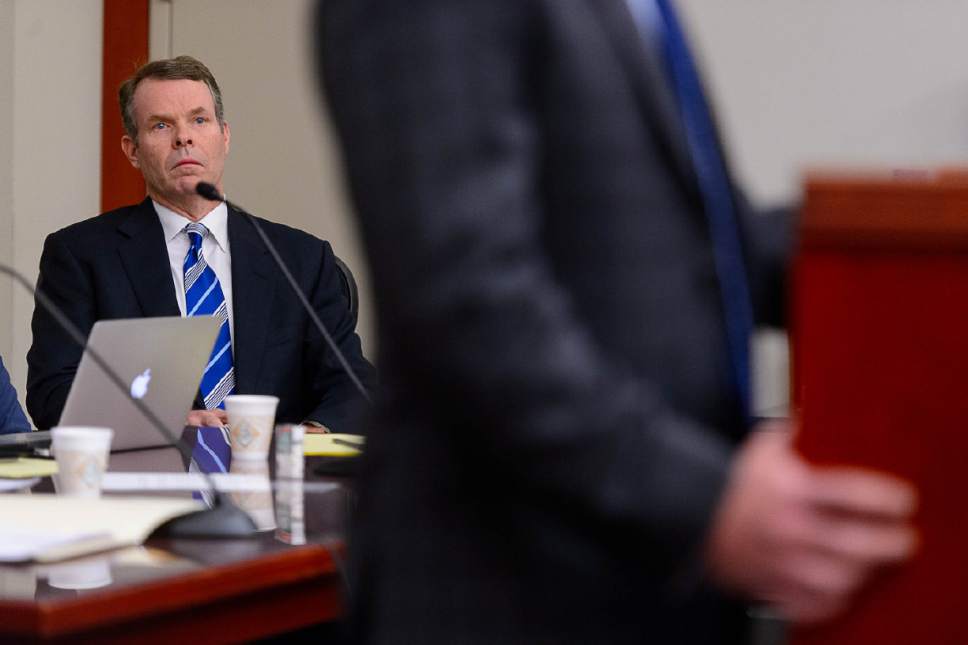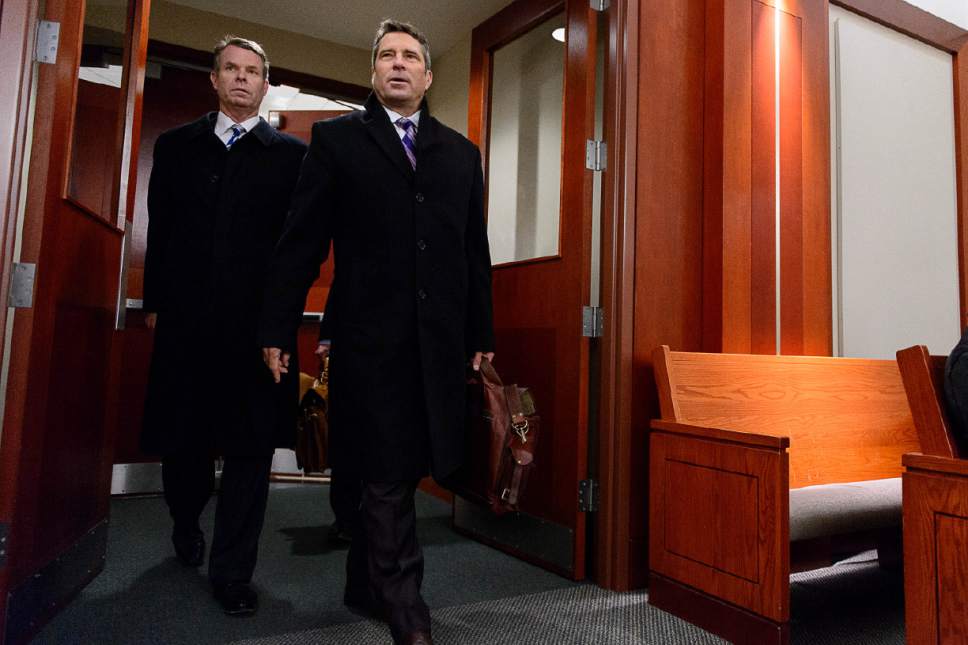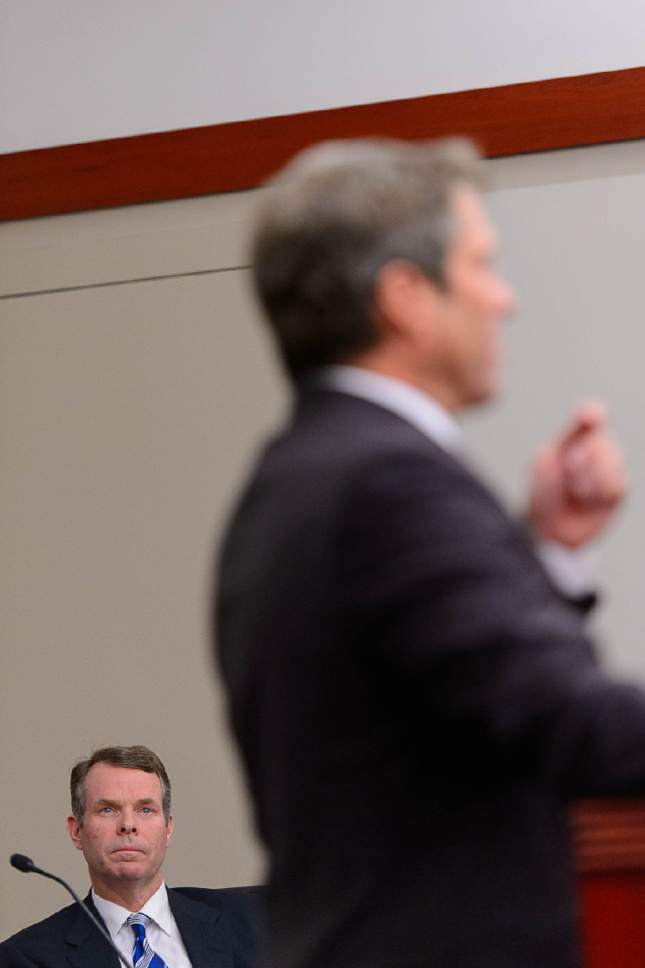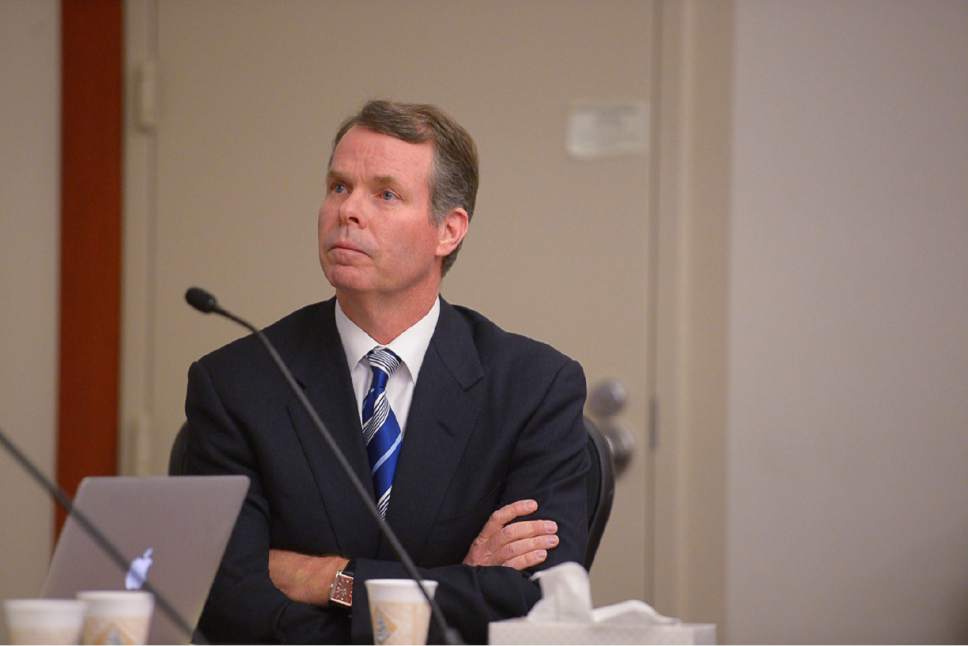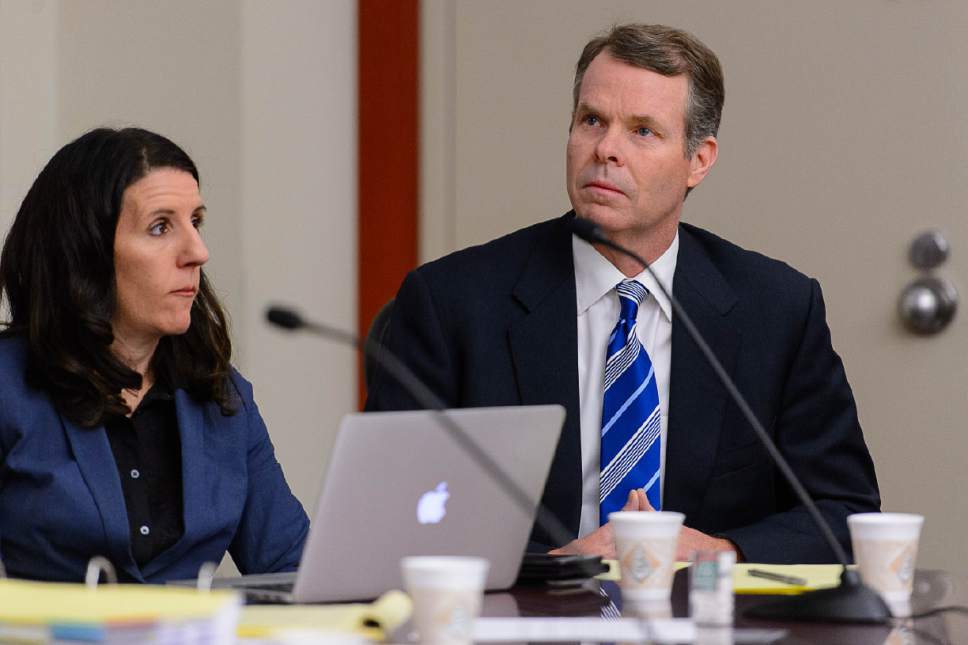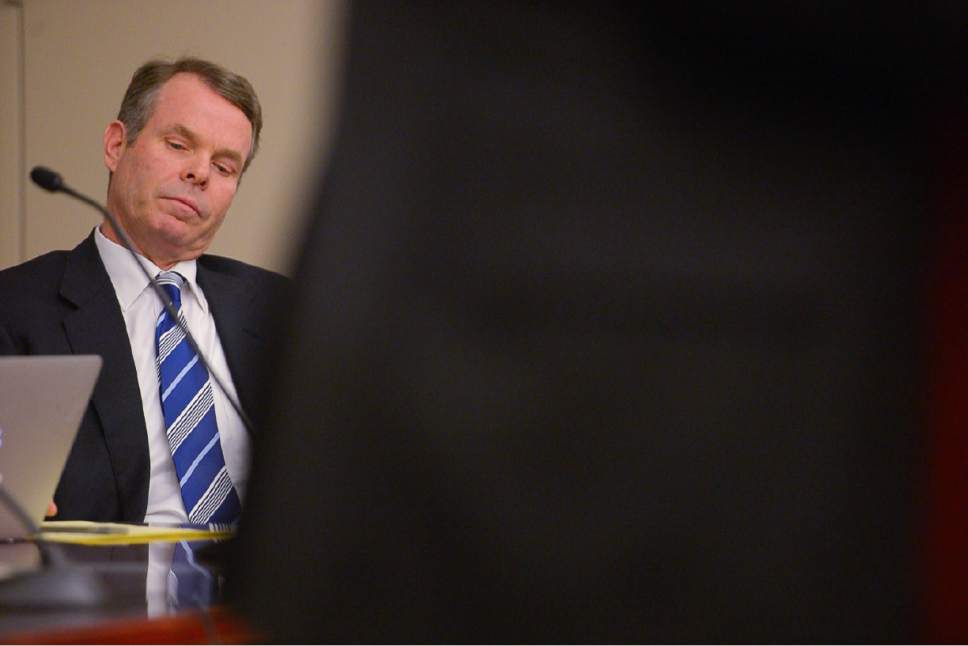This is an archived article that was published on sltrib.com in 2016, and information in the article may be outdated. It is provided only for personal research purposes and may not be reprinted.
A state judge on Wednesday rejected two attempts to dismiss six of the 14 charges pending against former Utah Attorney General John Swallow.
Third District Judge Elizabeth Hruby-Mills issued orders that nixed attempts to toss the six charges based on a recent U.S. Supreme Court ruling and on an argument that prosecutors lost or didn't obtain a recording of an investigative interview of a key witness — imprisoned St. George businessman Jeremy Johnson.
Swallow, whose term as attorney general lasted about 11 controversy-filled months before he resigned in December 2013, is charged with 13 felonies and a misdemeanor count that stem from alleged activities before and during his tenure in the attorney general's office.
With a four-week trial set to begin Feb. 7, Swallow's attorney, Scott C. Williams, had pressed for the dismissal of six of the charges that included racketeering, accepting an illegal gift and receiving or soliciting bribes.
Williams had argued that the recent U.S. Supreme Court decision in a public-corruption case against a former governor of Virginia had rendered Utah's bribery statute unconstitutional; the attorney sought dismissal of the three felony charges of soliciting or accepting a bribe.
The Supreme Court decision narrowed the possible scope of public-corruption charges, mandating that only official actions by a government official in return for a bribe counted as public corruption. Conduct such as arranging a meeting after receiving a gift would not be covered, the decision suggested.
Williams argued that the ruling meant Utah's bribery statute was overly vague and that three charges against Swallow that relied on the law should be tossed.
Hruby-Mills, however, said Williams didn't argue that Utah's statute was vague when applied to the specific conduct Swallow is charged with, or that the Supreme Court decision means Swallow's actions were constitutionally protected.
In a second challenge, Williams argued that four charges against Swallow should be dismissed because the prosecution team did not obtain or preserve statements Johnson gave to Davis County Attorney Troy Rawlings and state investigator Scott Nesbitt in an August 2013 interview.
The meeting was the first of several interviews with Johnson, who could be a witness against Swallow. Williams argued that the recording could contain evidence that would help Swallow defend himself, and that the failure to produce it should lead to dismissal of four charges.
But Williams, Hruby-Mills ruled, had not shown that a recording of the meeting could help Swallow's defense at trial.
Williams sought the dismissal of six charges total, one of them in two different motions. He declined to comment on Wednesday's decision.
Salt Lake County District Attorney Sim Gill, whose office is prosecuting Swallow, said he had not read the decisions Wednesday evening, but that his office remains "committed to following the process and work through all the issues" in what he called a "complex and nuanced case."


